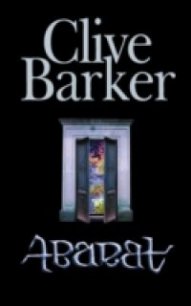Midnight Plus One - Lyall Gavin (книги полностью бесплатно .TXT) 📗
He made a non-committalmmm noise.
Maganhard leant forward and asked: 'How much do you think the police know, Mr Cane?'
'Well-' I tried to count up. They know we're in France. They know there's four of us: the crew of that yacht probably talked their heads off. As sailors, the police'd be able to put the screws on by threatening to ban them from France for ever. So they know you and Miss Jarman, but they probably can't describe Harvey or me. Not after just a glimpse on that beach. But apart from the telegram, that's about all.'
Miss Jarman said: 'What about the man you had a fight with in Tours? Won't they know about him?'
Harvey said: 'No. His pals'll have hauled him off to some quack doctor to get him patched up. How would they explain to the cops what they were doing, anyway?'
Maganhard said heavily: 'I hope you are right.'
'God, I only have to be right the whole time,' I snapped. 'The cops just need to be right once, that's all.'
Harvey smiled his twisted smile. 'Your trouble is you're just not enjoying the ride, chum.'
I glared at him, but soon my jumpiness passed. A few kilometres out of Dinadan we passed through thick pine woods, fresh logs stacked by the roadside like huge peeled asparagus. Then the road climbed in wriggles towards the final rim of the central plateau before the drop to the Rhone.
The farms died out as the country got steeper. The hilltops turned into bare grey rock, the slopes into rock slides stitched in place by a few bushes or tough grass.
I swung up in an uphill left-hand curve over the shoulder of a hill, where the road was sunk across a small spur, with rough rock walls speckled with clumps of broom on either side.
Two light-green Renault 4L's blocked the road.
They were carefully arranged, slanted across the road with their back ends almost touching in an arrowhead pointing at us. Whatever I did, I was going to hit them.
I rammed my foot back on the accelerator; it was the only unexpected thing I had left to do. Just before we hit, Harvey snatched down at his ankle and fired two careful shots through the windscreen.
There was a huge clang and jolt, turning into a scream of tearing metal. Then, suddenly, it was quiet.
My face was resting on the steering-wheel, but I didn't seem to have hit it hard. I grabbed for my door handle, had to kick it open, and pitched out on to the road, spilling maps, Mauser, and spare magazine from the open briefcase as I went.
I heard Harvey tumble out of the other side.
Lying flat in a puddle of broken glass, I was covered on three sides by the Citroen, the six-foot rock wall beside the road, and one of the Renaults which had got knocked aside and ended up just behind us. Under the Citroen, I could see Harvey flat against the wall on his side.
He looked across, and said: 'Cover above me.'
I said: 'Yes,' and then looked to see what he was talking about.
They'd planned a good ambush, in a place I should have remembered and worried about. The rock walls of the cutting meant we couldn't have swerved, and couldn't jump off the road once we'd hit the Renaults. Then we'd have been trapped in one precise spot, with them waiting up on the banks on either side to blaze away.
But by hitting the Renaults as hard as I could, I'd shifted the whole scene several yards: now they'd have to move before they could shoot.
But we were still trapped inside the cutting – and they were still on the banks above us.
A gun banged over my head and a shot crunched into the Citroen's roof. Harvey fired back. The steepness of the wall meant the people on my side couldn't get at me; Harvey's side couldn't get at him. We would be shooting across, over each other's heads.
Suddenly somebody stuck his head and gun up from the rocks on the bank above Harvey and loosed off two shots in my direction. Broken shale clattered down the rock wall behind me. I ducked, and grabbed for the Mauser, clipped the holster on as a butt, and switched the button to Automatic.
Another shot, from somewhere back up the road, slammed into the battered Renault beside me. And another. As if it were a signal – and it probably was – my first man jumped up from the rocks and started pumping shots past my head.
I jammed the Mauser into my shoulder, clamped my left hand on the magazine, and fired.
It went off in one shortbrrap, trying to rip out of my hands. The man was hit by a sudden wind: his arms flung out sideways, then his head snapped up, and he pitched back out of sight.
Through the ringing in my ears I heard Harvey saying: 'I keep telling you the war's over. Keep it single shots.'
'I got him.' I was trying to work out how many rounds I'd fired; I couldn't. The Mauser fires too fast for individual shots to echo in your brain. I guessed I'd fired ten – half the magazine.
Harvey said: 'I count three of them's showed so far.'
'Yes. Almost like a war, isn't it?'
'The hell with you.' He fired over my head, uphill. By my reckoning, the ranges were a bit long for his short-barrelled gun but he was aiming as carefully as if he'd had a big target pistol.
Then there was a pause. The mixture of three cars – the second Renault was jammed diagonally across the Citroen's nose – gave us a lot of cover. If whoever-it-was had thought to bring a few grenades, they could have blasted us out without showing themselves. But since they'd been showing themselves, it looked as if they'd forgotten the grenades.
A gun fired behind me. I'd thrown myself flat and twisted half round to look up the road before I realised the shot hadn't struck anywhere near me.
Standing there, in the middle of the road, was a man, holding a pistol aimed at the sky. He yelled:'Arvi!'
Through under the car, I saw Harvey's arm straighten and the little gun blurred in his hand. He fired three shots. When I looked back up the road, the man was just a heap.
Two more shots came from the hillside above me, one tearing into the Citroen's roof. Harvey fired back over the top of the car, then shouted: 'Give me that thing! '
I tossed the Mauser over the Citroen and he grabbed it and fired two short bursts up the hill.
Then he stood clear of the cars, still watching the hill. I climbed slowly on to my feet and walked round beside him, looking nervously over my shoulder. But the hillside was empty.
Harvey said: 'Last seen running like hell,' and gave me the empty Mauser.
'Glad you find it has its uses.'
He didn't say anything, just walked away up the road, thumbing fresh cartridges into the Smith and Wesson. I found the Mauser's spare magazine, clipped it in, and followed.
He was standing, staring down at the man he'd shot. 'The stupid bastard,' he said softly. 'What was he trying to do? -Standing there shouting at me. The damn stupid bastard.' He lifted his foot and I thought he was going to kick the dead face – but he just tipped the automatic out of the man's hand.
He looked up at me. 'You know him?'
I nodded. It was Bernard – one of the two top gunmen in Europe. One of the men I'd asked for in preference to Harvey himself.
Harvey said: 'Yeah, I knew him, too. He must've recognised me – shouted my name. What the hell did hewant?'
I shrugged. 'Maybe to arrange an armistice. Maybe he didn't believe in dog eating dog. We give him Maganhard, we get away safe.'
He stared. 'You think so?'
'Think up something better.'
He looked back at the dead man. 'The stupid bastard. Didn't he know it was serious?' Then his voice went soft again, almost puzzled. 'I didn't think I'd end up shootinghim.'
I didn't think Bernard had expected it, either – but all I said was: 'They sent in the First Team this time.'
Harvey nodded and walked back.
That left me and Bernard. I was in a hurry to get away from this place – anybody who'd heard my Mauser go off wouldn't have writtenthat down as a bit of poaching with a shotgun – but not in so much of a hurry to leave bodies in the middle of the road. I dragged him back up the road to where the downhill rock wall ended, then off it, and in among the rocks on the spur.


